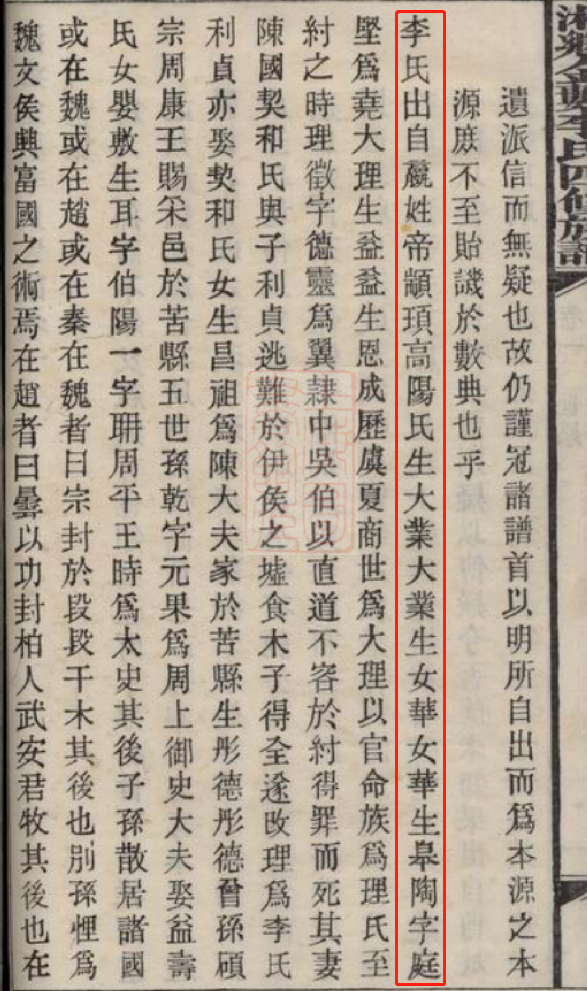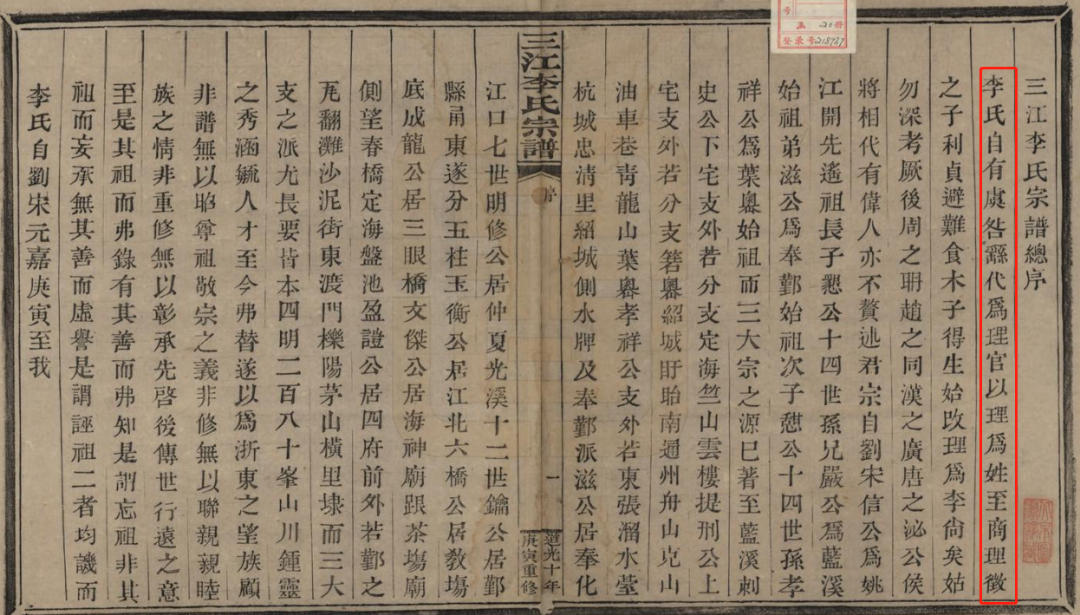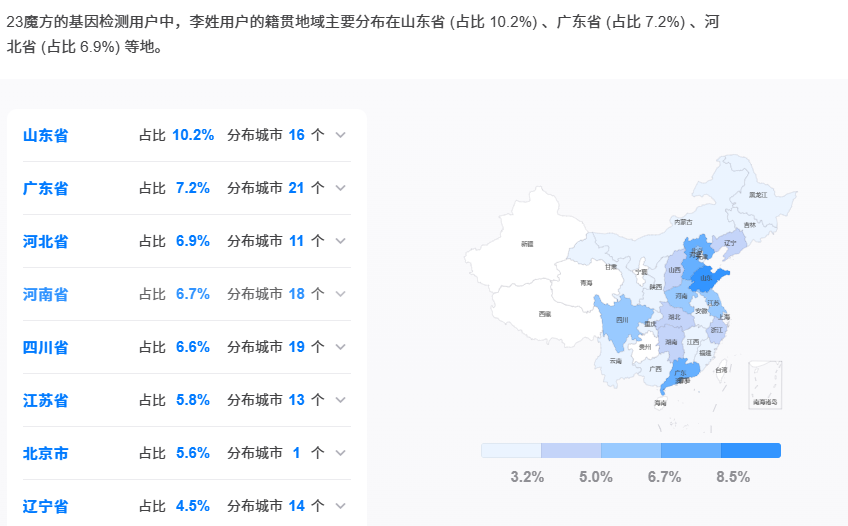李姓来源于哪里? 史上最全李氏家谱,共803册(中英对照)

李姓的起源
The origin of Li
关于李姓的得姓历史,有很多说法,但最广为接受的一种是,它源于姓嬴,是尧帝时期的司法大臣皋陶的后裔。皋陶的儿子伯益继承了父亲的职位,并被舜帝赐姓嬴。伯益的后代也连续三代担任司法大臣,并采用了李姓,与理同音。其中一位就是李利贞,他是道教创始人老子的祖先。老子的原名叫李耳,是李利贞的第十一代孙。

There are many theories about how the surname Li came to be, but the most widely accepted one is that it originated from the surname Ying, which was given to the descendants of Gao Tao, a minister of justice under Emperor Yao. Gao Tao’s son Bo Yi inherited his father’s position and was granted the surname Ying by Emperor Shun. Bo Yi’s descendants also served as ministers of justice for three generations, and they adopted the surname Li, which was pronounced the same as Li, meaning “justice” or “law”. One of them was Li Lizhen, who was the ancestor of Laozi, the founder of Taoism. Laozi’s original name was Li Er, and he was the eleventh generation of Li Lizhen.

另一种说法是,李姓源于姓理,理利贞是老子(李耳)的祖先,到上古帝王颛顼之后皋陶后代理徵,字德灵,封为中吴伯,在殷纣王时任理官,因执法如山,忤逆商纣王的旨意,招来杀身之祸。家族面临株连危险。妻契和氏携幼子利贞出逃,到伊侯之墟,饥渴交侵,摘路旁树上李子充饥才得生存,最后到豫东地区的苦县(今河南鹿邑县东)。一感李子活命之恩,二为改姓避难,所以理利贞改姓李利贞,后迁徙定居陇西。从此李氏延续万代,繁衍发达而成中华第一大姓。

Another saying is that the surname Li originated from the Li Lizhen, who was the ancestor of Laozi (Li Er), and after the ancient emperor Zhuanxu, he was the descendant of Gaotao, Li Zheng, whose name was Deling, and was sealed as Zhongwu Bo. He was a Li official during the reign of King Zhou of Yin. Because he enforced the law like a mountain, he disobeyed King Zhou’s will and brought about his death. The family faced the danger of being implicated. His wife Qi He took his young son Li Zhen and fled to Yihou Ruins. He was hungry and thirsty. He picked up the plum on the side of the road to fill his hunger and survived. Finally, he arrived in Kuxian County in eastern Henan (now east of Luyi County, Henan). One feels the grace of Li Zi’s life, and the second is to change his surname to avoid disaster. Therefore, Li Lizhen changed his surname to Li Lizhen and later moved to Longxi. Since then, the Li family has continued for generations and developed into the first surname in China.
还有其他来源的李姓,例如一些少数民族在融入汉文化时采用或被赐予的李姓,如蒙古族、藏族、回族和满族等。还有一些人为了表达对唐朝的忠诚或归属感而改姓李,因为唐朝的皇室姓氏就是李。例如,西夏王朝的建立者李元昊,原本是鲜卑拓跋氏的后裔。
There are also other sources of Li, such as ethnic minorities who adopted or were given the surname Li when they assimilated into Han culture, such as some Mongols, Tibetans, Hui and Manchus. Some people also changed their surnames to Li to show their loyalty or affiliation to the Tang dynasty, which had Li as its royal surname. For example, Li Yuanhao, the founder of the Western Xia dynasty, was originally from the Tuoba clan of the Xianbei people.
李姓的人口和分布
The population and distribution of Li
李姓是亚洲乃至世界上最多人口的姓氏之一。根据Ancestry.com 2019年的一份报告,李姓在全球最常见姓氏的排行榜上位居第二,约有1.04亿人拥有这个姓氏。仅在中国,2016年就有约9500万人姓李,占总人口的7.94%,在所有姓氏中排名第一。
Li is one of the most populous surnames in Asia and the world. According to a 2019 report by Ancestry.com, Li ranked second in the global list of most common surnames, with about 104 million people bearing this surname. In China alone, there were about 95 million people with the surname Li in 2016, accounting for 7.94% of the total population and ranking first among all surnames.

李姓在中国各地乃至海外都有广泛分布。从历史上看,李姓起源于河南省,并在秦汉时期扩散到山西、河北、陕西、四川和湖北等地区。唐朝时期,李姓达到了鼎盛和影响力的顶峰,并向南扩展到广东、广西、福建和海南等地区,以及向东扩展到韩国和越南等地区。明清时期,李姓继续迁徙到云南、贵州、台湾和东南亚等地方。
Li has a wide distribution across China and beyond. Historically, Li originated from Henan province and spread to other regions such as Shanxi, Hebei, Shaanxi, Sichuan and Hubei during the Qin and Han dynasties. During the Tang dynasty, Li reached its peak of prosperity and influence, and expanded to Guangdong, Guangxi, Fujian and Hainan in the south, as well as Korea and Vietnam in the east. During the Ming and Qing dynasties, Li continued to migrate to other places such as Yunnan, Guizhou, Taiwan and Southeast Asia.
如今,近30%的李姓人口集中在河南、四川和山东三个省份。仅河南就有约10.8%的李姓人口,是拥有李姓人数最多的省份。其他拥有大量李姓人口的省份包括山西、陕西、河北和江西等。在汉族人口中李姓比例最高的省份是青海,达到11.4%。

Today, nearly 30% of Li’s population is concentrated in Henan, Sichuan and Shandong provinces. Henan alone has about 10.8% of Li’s population, making it the province with the most people with this surname. Other provinces with large numbers of Li include Shanxi, Shaanxi, Hebei and Jiangxi. The province with the highest proportion of Li among its Han population is Qinghai, with 11.4%.
结论
Conclusion
李姓是一个有着悠久历史和丰富文化的姓氏。它孕育了许多在政治、宗教、文学、艺术和科学等领域杰出的人物。它也是一个反映了中国文明的多样性和融合性的姓氏,因为它包含了来自不同民族和地区的元素。李姓不仅是一个名字,也是一个身份和传承的象征。
Li is a surname with a long history and a rich culture. It has produced many outstanding figures in various fields such as politics, religion, literature, art and science. It is also a surname that reflects the diversity and integration of Chinese civilization, as it incorporates elements from different ethnic groups and regions. Li is not only a name, but also a symbol of identity and heritage.
